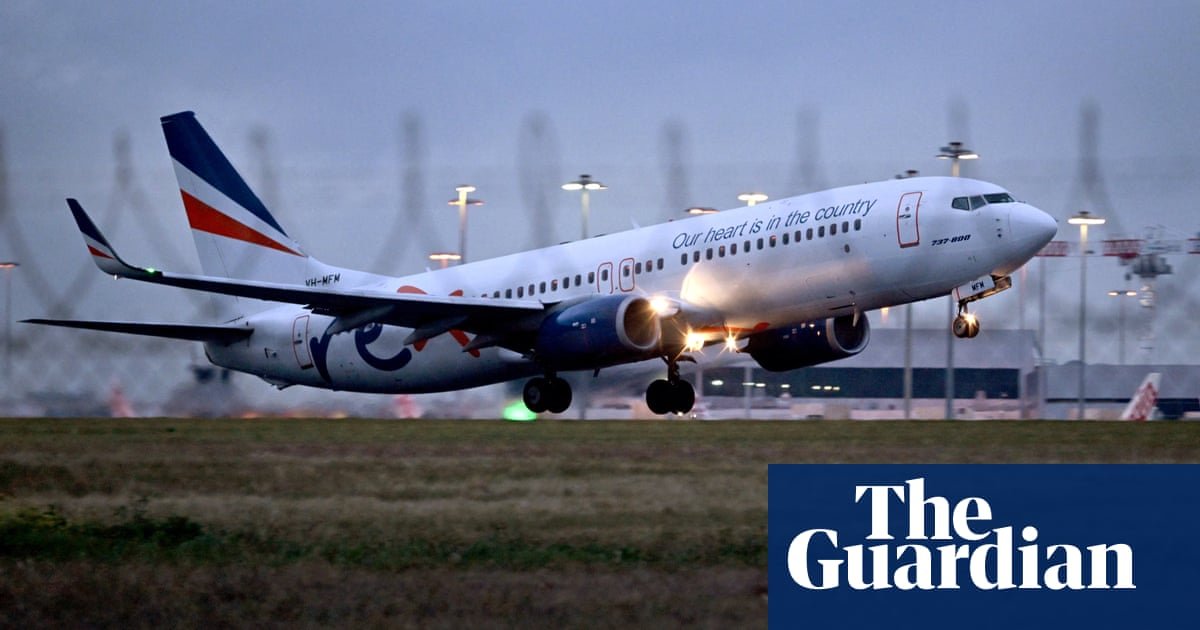There is uncertainty about the future of Rex – Australia’s third-largest airline – with speculation regarding its financial situation and tension among the leadership team.
On Tuesday afternoon, Bloomberg reported that Rex was to appoint EY as administrators, citing people familiar with the matter. Meanwhile, Rex’s website was not taking forward bookings.
Rex and EY were contacted for comment.
The airline entered a trading halt on Monday. The news follows the recent collapse of budget carrier Bonza in a market dominated by the Qantas and Virgin duopoly.
Rex is the only air link provider for many regional towns and its fares on capital city routes have been competitive with the major players.
So, how serious is the situation at Rex?
What has happened?
On Monday, the Australian stock exchange announced it had suspended trade in Rex’s shares at the airline’s request “pending it releasing an announcement”. Rex said the trading halt came ahead of an announcement “in relation to a news article published on Saturday”.
The article is understood to be a report in the Australian newspaper that the airline had appointed consultants from Deloitte to advise how it could turn around its financial woes.
The ASX and Rex said the halt was in place until the announcement or trading commenced on Wednesday morning.
Why would Rex request a trading halt? Could it be bad news?
It’s not clear what Rex is going to announce although Bloomberg reports administrators were to be appointed.
Listed companies may request a trading halt in response to media reporting of market-sensitive information.
This is because the reporting could influence investors or potential investors who are privy to the information in the story – while others don’t have those details.
Significant announcements that could affect a company’s share price must be announced to the ASX – meaning everyone gets the same information at the same time.
Rex’s announcement could simply be confirming it has appointed consultants – as reported in the Australian – or it could be something more significant.
Is Rex in financial trouble?
Rex in February reported a loss of $3.2m for the first half of the 2023-24 financial year, compared with a $16.5m loss in the previous six months. It said escalating costs, particularly for fuel, made it hard to predict full-year profitability.
Rex was initially called Regional Express following its formation after the death of Ansett. For most of its existence, Rex has been a purely regional carrier, operating 36-seater Saab 340 turboprop aircraft.
However, in 2020, Rex began vying for a share of the lucrative market between capital cities, seizing on the instability in Australia’s domestic aviation market which occurred when Virgin Australia entered administration and underwent a significant restructuring.
Rex leased Boeing 737 jets, including several formerly flown by Virgin, and launched routes between Sydney, Melbourne and Brisbane.
after newsletter promotion
The airline boasted of these routes’ profitability and continued launching new routes including to Perth and Adelaide. Rex is currently leasing nine 737s.
Over the same period, Rex has outperformed Qantas and Virgin to, at times, be Australia’s most on-time airline, and it also acquired a 50% stake in fly-in fly-out operator National Jet Express.
However, it has struggled with numerous issues, including allegations of anti-competitive behaviour from Qantas, and difficulty accessing strategically important Sydney airport slots at peak times – a gripe echoed by failed budget operator Bonza.
Rex has also confronted a shortage of parts to repair its ageing fleet of Saab 340 aircraft for its core regional operations, which have also been hampered by a shortage of pilots for the smaller planes.
Is Rex about to collapse? Or could something else be at play?
It’s too early to know, but aviation analysts stress airlines commonly bring in consultants to help improve efficiencies and increase profits in a fiercely competitive industry.
Rex has also been rocked by leadership tensions, with major shareholder and former executive chairman Lim Kim Hai ousted in June.
Lim was replaced by John Sharp, who had been the deputy chairman of the board. Sharp, a former Nationals federal transport minister, has in recent years made headlines with his colourful criticism of Qantas and aviation policy.
Lim has since pushed to remove Sharp and three other directors from the board, with a special shareholder meeting to vote on Lim’s demands.
It’s unclear if there is any connection between the leadership tensions and Rex’s financial woes.
The federal transport minister, Catherine King, was asked about Rex’s future on Tuesday morning.
“We just genuinely don’t know,” she told Seven’s Sunrise program.
“It’s an incredibly important airline – in many cases [it’s] the only airline going into a range of smaller country towns and people are heavily reliant on it.
“We are treating this very seriously and being very vigilant about what is happening, and keeping an eye on the situation hour by hour.”
